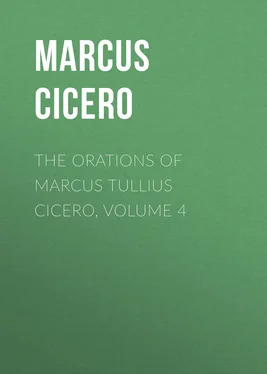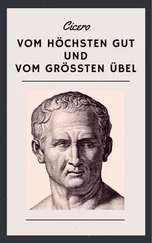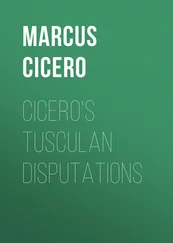Marcus Cicero - The Orations of Marcus Tullius Cicero, Volume 4
Здесь есть возможность читать онлайн «Marcus Cicero - The Orations of Marcus Tullius Cicero, Volume 4» — ознакомительный отрывок электронной книги совершенно бесплатно, а после прочтения отрывка купить полную версию. В некоторых случаях можно слушать аудио, скачать через торрент в формате fb2 и присутствует краткое содержание. Жанр: foreign_antique, Философия, foreign_edu, на английском языке. Описание произведения, (предисловие) а так же отзывы посетителей доступны на портале библиотеки ЛибКат.
- Название:The Orations of Marcus Tullius Cicero, Volume 4
- Автор:
- Жанр:
- Год:неизвестен
- ISBN:нет данных
- Рейтинг книги:3 / 5. Голосов: 1
-
Избранное:Добавить в избранное
- Отзывы:
-
Ваша оценка:
- 60
- 1
- 2
- 3
- 4
- 5
The Orations of Marcus Tullius Cicero, Volume 4: краткое содержание, описание и аннотация
Предлагаем к чтению аннотацию, описание, краткое содержание или предисловие (зависит от того, что написал сам автор книги «The Orations of Marcus Tullius Cicero, Volume 4»). Если вы не нашли необходимую информацию о книге — напишите в комментариях, мы постараемся отыскать её.
The Orations of Marcus Tullius Cicero, Volume 4 — читать онлайн ознакомительный отрывок
Ниже представлен текст книги, разбитый по страницам. Система сохранения места последней прочитанной страницы, позволяет с удобством читать онлайн бесплатно книгу «The Orations of Marcus Tullius Cicero, Volume 4», без необходимости каждый раз заново искать на чём Вы остановились. Поставьте закладку, и сможете в любой момент перейти на страницу, на которой закончили чтение.
Интервал:
Закладка:
XIX. But let us say no more of your profligacy and debauchery. There are things which it is not possible for me to mention with honour; but you are all the more free for that, inasmuch as you have not scrupled to be an actor in scenes which a modest enemy cannot bring himself to mention.
Mark now, O conscript fathers, the rest of his life, which I will touch upon rapidly. For my inclination hastens to arrive at those things which he did in the time of the civil war, amid the greatest miseries of the republic, and at those things which he does every day. And I beg of you, though they are far better known to you than they are to me, still to listen attentively, as you are doing, to my relation of them. For in such cases as this, it is not the mere knowledge of such actions that ought to excite the mind, but the recollection of them also. Although we must at once go into the middle of them, lest otherwise we should be too long in coming to the end.
He was very intimate with Clodius at the time of his tribuneship; he, who now enumerates the kindnesses which he did me. He was the firebrand to handle all conflagrations; and even in his house he attempted something. He himself well knows what I allude to. From thence he made a journey to Alexandria, in defiance of the authority of the senate, and against the interests of the republic, and in spite of religious obstacles; but he had Gabinius for his leader, with whom whatever he did was sure to be right. What were the circumstances of his return from thence? what sort of return was it? He went from Egypt to the furthest extremity of Gaul before he returned home. And what was his home? For at that time every man had possession of his own house; and you had no house anywhere, O Antonius. House, do you say? what place was there in the whole world where you could set your foot on anything that belonged to you, except Mienum, which you farmed with your partners, as if it had been Sisapo? 15 15 Sisapo was a town in Spain, celebrated for some mines of vermilion, which were farmed by a company.
XX. You came from Gaul to stand for the quaestorship. Dare to say that you went to your own father before you came to me. I had already received Caesar's letters, begging me to allow myself to accept of your excuses; and therefore, I did not allow you even to mention thanks. After that, I was treated with respect by you, and you received attentions from me in your canvass for the quaestorship. And it was at that time, indeed, that you endeavoured to slay Publius Clodius in the forum, with the approbation of the Roman people; and though you made the attempt of your own accord, and not at my instigation, still you clearly alleged that you did not think, unless you slew him, that you could possibly make amends to me for all the injuries which you had done me. And this makes me wonder why you should say that Milo did that deed at my instigation; when I never once exhorted you to do it, who of your own accord attempted to do me the same service. Although, if you had persisted in it, I should have preferred allowing the action to be set down entirely to your own love of glory rather than to my influence.
You were elected quaestor. On this, immediately, without any resolution of the senate authorizing such a step, without drawing lots, without procuring any law to be passed, you hastened to Caesar. For you thought the camp the only refuge on earth for indigence, and debt, and profligacy,—for all men, in short, who were in a state of utter ruin. Then, when you had recruited your resources again by his largesses and your own robberies, (if, indeed, a person can be said to recruit, who only acquires something which he may immediately squander,) you hastened, being again a beggar, to the tribuneship, in order that in that magistracy you might, if possible, behave like your friend.
XXI. Listen now, I beseech you, O conscript fathers, not to those things which he did indecently and profligately to his own injury and to his own disgrace as a private individual; but to the actions which he did impiously and wickedly against us and our fortunes,—that is to say, against the whole republic. For it is from his wickedness that you will find that the beginning of all these evils has arisen.
For when, in the consulship of Lucius Lentulus and Marcus Marcellus, you, on the first of January, were anxious to prop up the republic, which was tottering and almost falling, and were willing to consult the interests of Caius Caesar himself, if he would have acted like a man in his senses, then this fellow opposed to your counsels his tribuneship, which he had sold and handed over to the purchaser, and exposed his own neck to that axe under which many have suffered for smaller crimes. It was against you, O Marcus Antonius, that the senate, while still in the possession of its rights, before so many of its luminaries were extinguished, passed that decree which, in accordance with the usage of our ancestors, is at times passed against an enemy who is a citizen. And have you dared, before these conscript fathers, to say anything against me, when I have been pronounced by this order to be the saviour of my country, and when you have been declared by it to be an enemy of the republic? The mention of that wickedness of yours has been interrupted, but the recollection of it has not been effaced. As long as the race of men, as long as the name of the Roman people shall exist, (and that, unless it is prevented from being so by your means, will be everlasting,) so long will that most mischievous interposition of your veto be spoken of. What was there that was being done by the senate either ambitiously or rashly, when you, one single young man, forbade the whole order to pass decrees concerning the safety of the republic? and when you did so, not once only, but repeatedly? nor would you allow any one to plead with you in behalf of the authority of the senate; and yet, what did any one entreat of you, except that you would not desire the republic to be entirely overthrown and destroyed; when neither the chief men of the state by their entreaties, nor the elders by their warnings, nor the senate in a full house by pleading with you, could move you from the determination which you had already sold and as it were delivered to the purchaser? Then it was, after having tried many other expedients previously, that a blow was of necessity struck at you which had been struck at only few men before you, and which none of them had ever survived. Then it was that this order armed the consuls, and the rest of the magistrates who were invested with either military or civil command, against you, and you never would have escaped them, if you had not taken refuge in the camp of Caesar.
XXII. It was you, you, I say, O Marcus Antonius, who gave Caius Caesar, desirous as he already was to throw everything into confusion, the principal pretext for waging war against his country. For what other pretence did he allege? what cause did he give for his own most frantic resolution and action, except that the power of interposition by the veto had been disregarded, the privileges of the tribunes taken away, and Antonius's rights abridged by the senate? I say nothing of how false, how trivial these pretences were; especially when there could not possibly be any reasonable cause whatever to justify any one in taking up arms against his country. But I have nothing to do with Caesar. You must unquestionably allow, that the cause of that ruinous war existed in your person.
O miserable man if you are aware, more miserable still if you are not aware, that this is recorded in writings, is handed down to men's recollection, that our very latest posterity in the most distant ages will never forget this fact, that the consuls were expelled from Italy, and with them Cnaeus Pompeius, who was the glory and light of the empire of the Roman people; that all the men of consular rank, whose health would allow them to share in that disaster and that flight, and the praetors, and men of praetorian rank, and the tribunes of the people, and a great part of the senate, and all the flower of the youth of the city, and, in a word, the republic itself was driven out and expelled from its abode. As, then, there is in seeds the cause which produces trees and plants, so of this most lamentable war you were the seed. Do you, O conscript fathers, grieve that these armies of the Roman people have been slain? It is Antonius who slew them. Do you regret your most illustrious citizens? It is Antonius, again, who has deprived you of them. The authority of this order is overthrown; it is Antonius who has overthrown it. Everything, in short, which we have seen since that time, (and what misfortune is there that we have not seen?) we shall, if we argue rightly, attribute wholly to Antonius. As Helen was to the Trojans, so has that man been to this republic,—the cause of war, the cause of mischief, the cause of ruin. The rest of his tribuneship was like the beginning. He did everything which the senate had laboured to prevent, as being impossible to be done consistently with the safety of the republic. And see, now, how gratuitously wicked he was even in accomplishing his wickedness.
Читать дальшеИнтервал:
Закладка:
Похожие книги на «The Orations of Marcus Tullius Cicero, Volume 4»
Представляем Вашему вниманию похожие книги на «The Orations of Marcus Tullius Cicero, Volume 4» списком для выбора. Мы отобрали схожую по названию и смыслу литературу в надежде предоставить читателям больше вариантов отыскать новые, интересные, ещё непрочитанные произведения.
Обсуждение, отзывы о книге «The Orations of Marcus Tullius Cicero, Volume 4» и просто собственные мнения читателей. Оставьте ваши комментарии, напишите, что Вы думаете о произведении, его смысле или главных героях. Укажите что конкретно понравилось, а что нет, и почему Вы так считаете.












